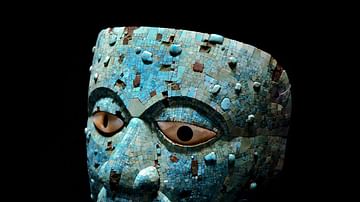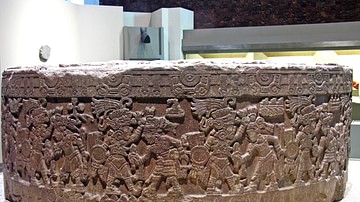Search
Search Results

Article
Ancient Israelite & Judean Religion
As early as the 10th century BCE, Israelite and Judean religion began to emerge within the broader West Semitic culture, otherwise known as Canaanite culture. Between the 10th century and 7th centuries BCE, ancient Israelite and Judean religion...

Definition
Chinampas - Mexico's Human-Made Agricultural Islands
Chinampas are human-made islands built in shallow lakebeds that have fed the people of Mesoamerica and shaped local ecosystems for over a thousand years. Sometimes referred to as 'floating gardens,' these agricultural feats of engineering...

Collection
15 Aztec Gods
The Aztecs of northern Mesoamerica (c. 1345 and 1521 CE) worshipped some of the weirdest, most fantastic and downright scary gods seen anywhere in history. The Aztec civilization and the empire it created revolved around winning special favour...

Definition
Ancient Persian Religion
Ancient Persian religion was a polytheistic faith which corresponds roughly to what is known today as ancient Persian mythology. It first developed in the region known as Greater Iran (the Caucasus, Central Asia, South Asia, and West Asia...

Definition
Roman Religion
In many societies, ancient and modern, religion has performed a major role in their development, and the Roman Empire was no different. From the beginning Roman religion was polytheistic. From an initial array of gods and spirits, Rome added...

Article
The Tizoc Stone
The Tizoc Stone is a huge stone cylinder from the Aztec capital of Tenochtitlan which depicts a sun-disk on its flat upper surface and carries a frieze around its outer edge showing Aztec warriors and the Aztec king Tizoc, whose reign from...

Article
Religion in Ancient China
Religious practices in ancient China go back over 7,000 years. Long before the philosophical and spiritual teachings of Confucius and Lao-Tzu developed or before the teachings of the Buddha came to China, the people worshipped personifications...

Definition
Huitzilopochtli
Huitzilopochtli (pron. Huit-zi-lo-pocht-li) or 'Hummingbird of the South' or 'Blue Hummingbird on the Left' was one of the most important deities in the Aztec pantheon and for the Méxica he was the supreme god. He was the god of the sun and...

Definition
Ancient Celtic Religion
The polytheistic religion of the ancient Celts in Iron Age Europe remains obscure for lack of written records, but archaeology and accounts by classical authors help us to piece together a number of the key gods, sacred sites, and cult practices...

Definition
Florentine Codex - An Encyclopedia of Life in 16th-Century Mexico
The Florentine Codex is an encyclopedic accounting of life in 16th-century Mexico and an invaluable resource for understanding the exchange between European and Indigenous cultures during the Spanish conquest. Emerging from a time of societal...